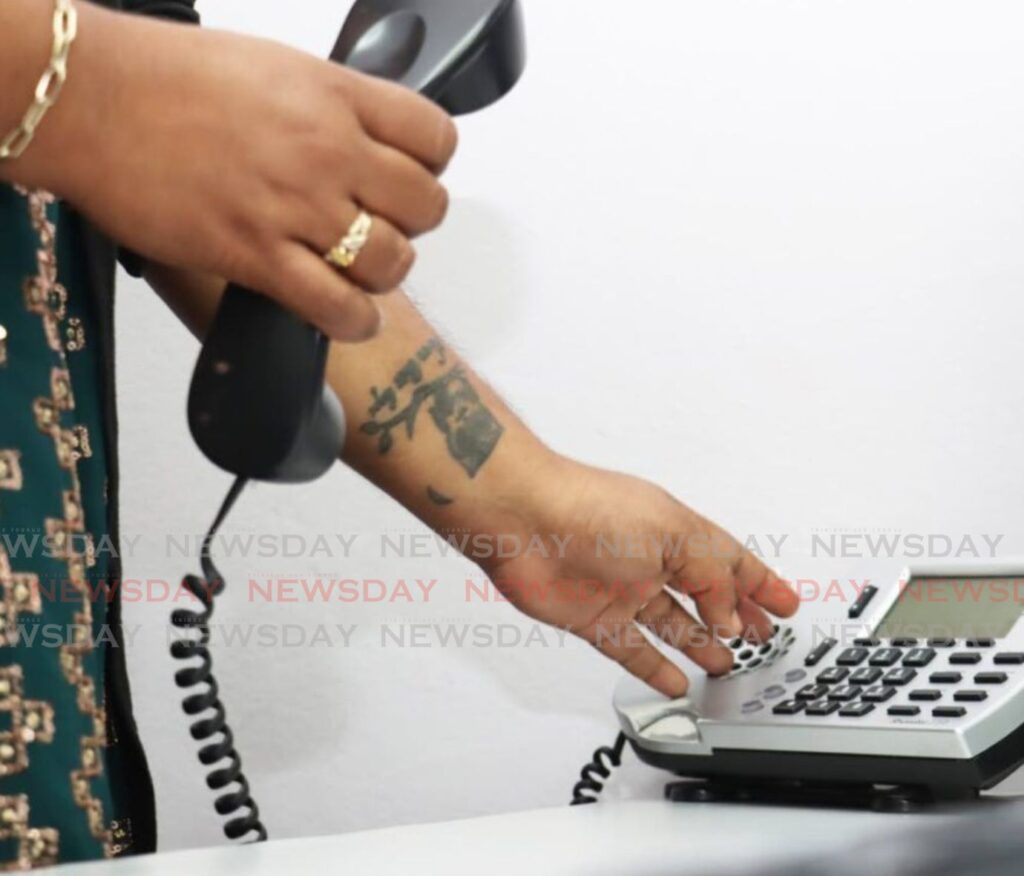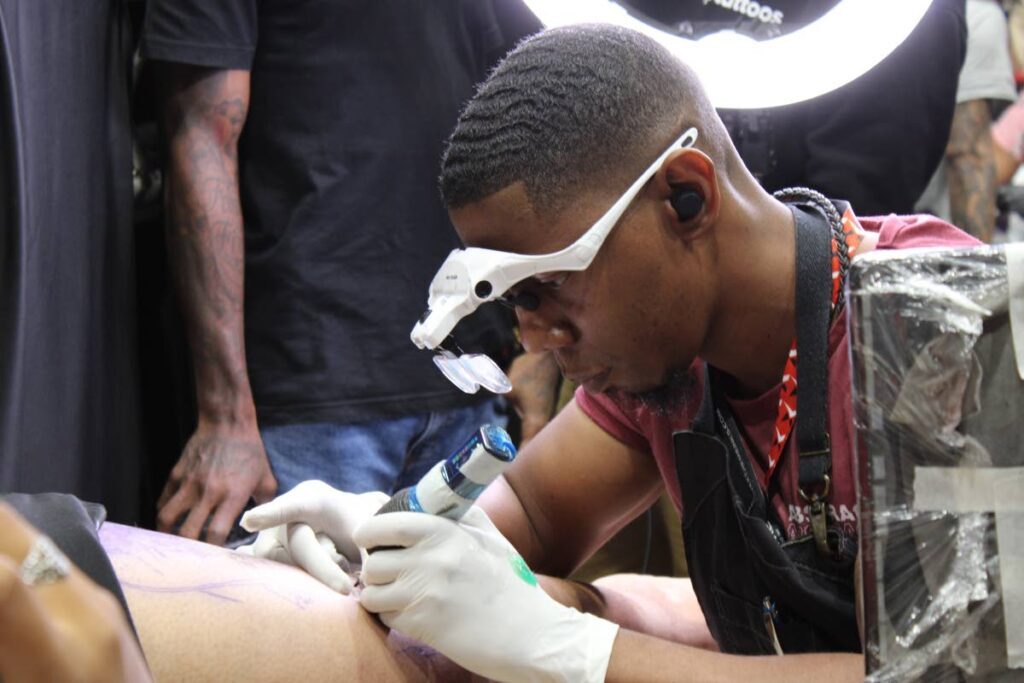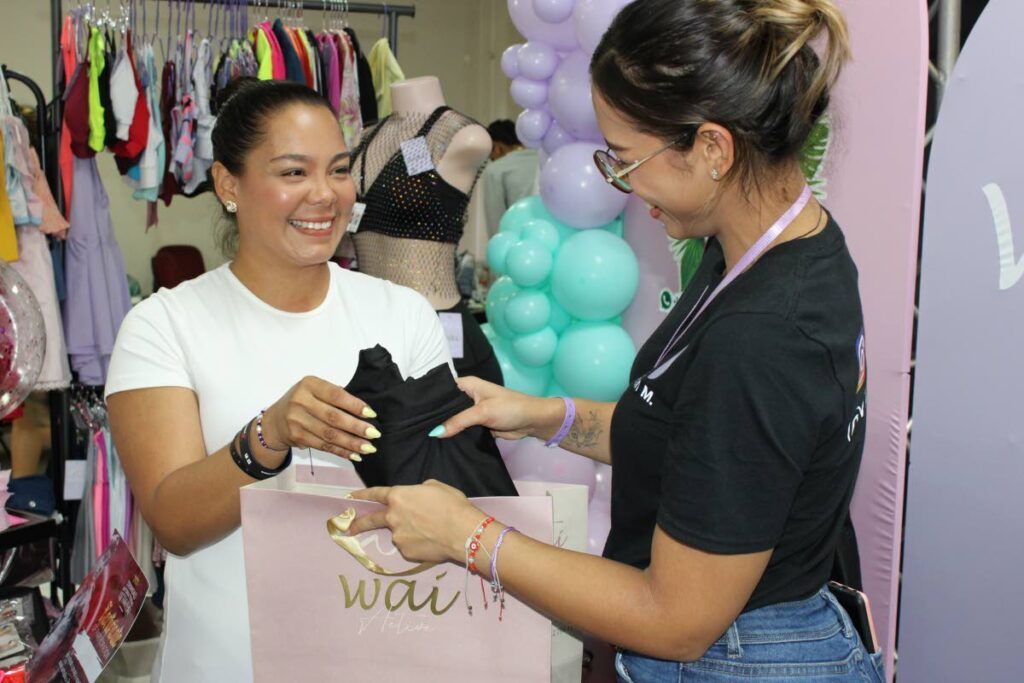Changing landscape: Tattoos in today’s workplace

Bavina Sookdeo
In contemporary society, tattoos have transitioned from symbols of rebellion or subculture to mainstream expressions of individuality and artistry.
But despite their growing acceptance, tattoos still carry a stigma in certain professional settings, where they are viewed as barriers to employment opportunities.
The decision to adorn one’s body with permanent ink is not merely a personal choice but can also have profound implications on career prospects and societal perceptions.
As such, navigating the complex interplay between personal expression and professional expectations poses a significant challenge for individuals considering tattoos in today’s workforce.
Business Day recently engaged with both tattoo enthusiasts and a recruitment agency to explore whether tattoos continue to present challenges in the realm of employment or if attitudes towards them are shifting.
In an interview with Phoebe Perreira, a Trinidadian employed in the hospitality industry abroad, the discussion delved into her experience with tattoos and their impact on her professional life.
When asked about the number of tattoos she has, Perreira said, “I have 16 tattoos, although I initially thought it was 15 until I recounted!”
Explaining her initial decision to get tattooed, she shared, “I always wanted to get one and the image I wanted was the Phoenix because of the myth behind it. I thought it would be one-and-done, especially with the pain I went through. I eventually added a few more.”
Highlighting the importance of tattoos to her, Perreira said, “Because tattoos are permanent, each one has a meaning. Some tattoos you can ask me about and I am willing to explain some I have, I prefer not to discuss as it might represent a time that I was going through something difficult, but each of them has a meaning.”

When asked about the visibility of her tattoos, she explained, “If I wear a two-piece (bikini), all are visible. However, when I go to work or church, the majority would be covered. Many times in the past, people would see me out of the work environment in regular clothes and say, 'Phoebe I didn’t know you had so many tattoos! So, I pride myself on being able to effectively be covered – my arms, leg, stomach, back, etcetera.”
Addressing any discrimination she may have faced in job applications, Perreira said, “I have worked in diverse environments where many other people had tattoos. As I mentioned, the majority of my pieces are easily hidden, so if I knew I was going to be in a less tolerant environment, I would cover up. Interviewing was never an issue as I’ve had more online interviews than in person.”
Another interviewee also shared her experience. Paloma Montano, who has retired because of medical reasons, was employed in the corporate sector, primarily with oil and gas companies.
Montano, who has tattoos on her chest, thigh and arms, explained her decision to get tattoos, saying, “The first two I ever got was because I love art...and found tattoos are a symbol of artwork on the human body which is a canvas.”
Highlighting the importance of her tattoos, she elaborated, “They all symbolise some sort of memory.”
When asked about discrimination during job applications, Montano replied, “I have not faced discrimination while applying for jobs because I always cover up for interviews.
“However, at the job where I first started wearing sleeves, which was a very hot environment, there was no discrimination when I removed my cardigan.
“When I landed jobs after having my sleeves (tattoos on her arms), coworkers who saw me in public were taken aback by the tattoos. I have always respected the corporate world and my tattoo exposure, so it was never a problem.”
Additionally, a 33-year-old man who wished to remain anonymous shared his perspective. He said he has four tattoos.
“I always liked the idea of tattoos. For me, they are spiritual and symbols reflecting my personal style.”
His tattoos are on his inner forearm, arms and back. Reflecting on discrimination, he said, “I never really experienced it in the private sector, but discrimination does occur in general.
“I think it’s a way for people to express themselves and it is unfair to judge based on this, but I understand there are stigmas surrounding these things such as tattoos and piercings.”
Lara Quentrall-Thomas, owner of Regency Recruitment and Resources Ltd, provided insights into employers’ perspectives on hiring people with tattoos.
Quentrall-Thomas has been in the recruitment business for over 30 years. Her company, based in Port-of-Spain, has served local and multinational firms for 27 years, offering comprehensive human resource management services.

Photo courtesy Regency Recruitment and Resources Ltd -
Quentrall-Thomas said there has been a shift in attitudes, with tattoos becoming more widely accepted across various industries.
According to her, employers’ attitudes towards tattoos have undergone significant changes in recent years.
While historically, certain industries such as flight attendants, customer service representatives and bank tellers with visible tattoos may have been frowned upon, Quentrall-Thomas said the overall perception has shifted.
“Honestly, in all the years that I’ve been recruiting, I’ve never explicitly had an employer say to me, 'No tattoos.'”
Quentrall-Thomas acknowledged that there are exceptions, particularly concerning tattoos depicting hate symbols or phrases, as well as face tattoos, which may still pose challenges for many employers.
However, she has observed a growing acceptance of tattoos, particularly among men and women who view them as expressions of personal identity and inspiration.
She highlighted the significance of tattoos as motivators and holders of memories, emphasising their evolving role in mainstream culture.
In industries such as technology and creative agencies, where individuality and creativity are valued, tattoos are increasingly embraced.
“Those kinds of industries tend to attract people who, because they're creative, they tend to have more body art.”
When it comes to the interview process, she noted that candidates’ reactions to questions about tattoos vary. However, she has never explicitly asked about tattoos during interviews.
Instead, she assesses candidates’ suitability for different work environments based on their overall presentation and preferences.

While Quentrall-Thomas has not encountered candidates with fully tattooed bodies in traditional job settings, she emphasises that hiring decisions should prioritise candidates’ abilities, work ethics and behaviour over appearance.
To those in search of work, she said, “To anybody who’s thinking about getting a tattoo, if you are somebody who is looking for work or looking at how your career progresses, just be mindful of the industry that you’re in (plan to be in).
“I would encourage anybody to get a tattoo… I think they’re beautiful, but you may want to get one that can be hidden when necessary if you work in that kind of environment. If you don’t, then go for it. I think we have some brilliantly talented artists in the country.”
Regarding advice for employers, Quentrall-Thomas suggested being mindful of the evolving landscape and customer demographics.
“I think you have to be mindful of the type of job because even if you’re in a bank, which is traditionally a bit more conservative. There are jobs in a bank where it wouldn’t matter what piercings or tattoos or anything you have because you’re not interfacing with the customer.
“I also think that we have to be mindful of the fact that times change and our customers are changing. So, our customers have tattoos, our customers have piercings.
“I wouldn’t necessarily recommend to a client that they should restrict hiring people with tattoos and so on but I do feel like there’s probably a limit as to what kind of tattoos and how many tattoos etcetera.
“However, each individual company would need to decide what’s appropriate for their environment.”
As tattoos become increasingly mainstream, individuals and employers are navigating this evolving landscape with greater understanding and acceptance.
The annual tattoo exhibition, Tattoo Fest Trinidad 2024 – which features artistes, tattoo enthusiasts and small businesses – will take place on May 4 and 5 at the Centre of Excellence, Macoya, from midday to 11 pm.

Comments
"Changing landscape: Tattoos in today’s workplace"